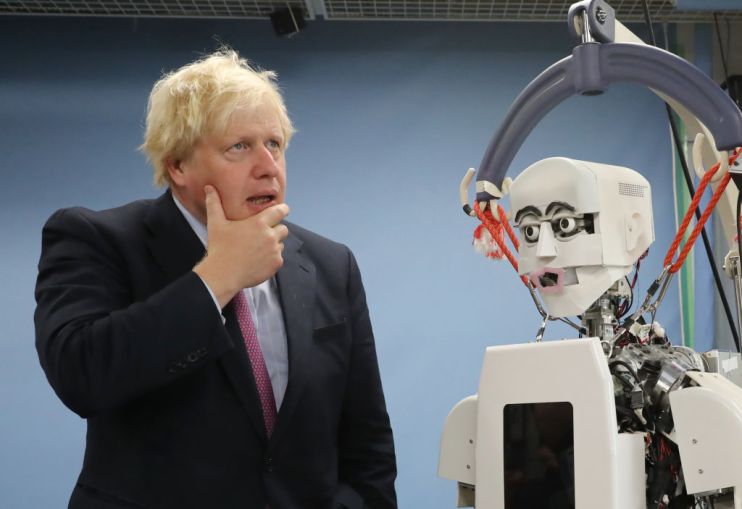Why Britain needs a minister for AI

With the nation in a state of economic and political uncertainty, Britain’s newly appointed Prime Minister looks to technology to rejuvenate and refocus the country.
He announces “a major national effort to bring advanced technology and new processes into industry”, launching the government’s first ministry of technology.
Tech experts across the country rejoice as policymakers finally allow their interests a seat at the top table, with the nation set to benefit from improved public services, higher living standards, and greater economic prosperity.
Great news, of course – if this hadn’t taken place more than half a century ago. From its promising start in 1963, Harold Wilson’s tech ministry swiftly absorbed responsibility for aviation, energy, and even trade, and its early potential was lost.
Despite a comprehensive industrial strategy, the lack of government focus on the promotion of cutting-edge technology persists. No minister has an explicit mandate to place rocket boosters under British technological excellence.
Our small business minister is overburdened with extra duties, ranging from the recall of faulty tumble dryers to protecting pub tenants and mitigating the closure of rural Post Offices. Our digital minister is hamstrung by the noble yet distracting causes of blocking access to pornography, phone security, and Fortnite addiction.
We also lack a dedicated brief for preparing for the disruption that advanced technologies like artificial intelligence (AI) will cause. This doesn’t mean regulating disruptive tech out of existence – it means overhauling education and skills to meet the coming change.
Other governments are acting where we are hesitating. The United Arab Emirates has a minister devoted solely to artificial intelligence, who is overhauling legal frameworks and infrastructures to turn the country into the world’s leading AI hub. South Korea has an entire Ministry for Startups, while Germany has just appointed a commissioner for the digital economy.
The UK government’s AI Council, on which I sit, and the Council for Science and Technology, get a fair hearing, and we should give credit where credit is due. But every day without a dedicated tech evangelist sitting at the top tables of government is a day wasted.
As mayor of London, Boris Johnson made great strides in helping to turn our capital into a global tech hub. On his watch, London’s position as a world tech leader soared, and we now produce more tech unicorns than anywhere else in Europe.
As Prime Minister, Boris now has the opportunity to do this for the country at large, and his first step should be to look to industry for a new UK minister for AI.
From the appointment of respected shipowner Lord Maclay as shipping minister in 1916, to financier Lord Sassoon’s appointment to commercial secretary a century later, Britain has a proud history of plucking private sector experts to help tackle the day’s most-pressing policy issues.
Both the benefits and disruptive risks of innovations like AI and deeptech require the presence of experts at the highest levels of government.
With Brexit looming, it is vital we seize all opportunities to secure Britain’s future as a world-leading economy. Time for a minister for AI.
Main image credit: Getty